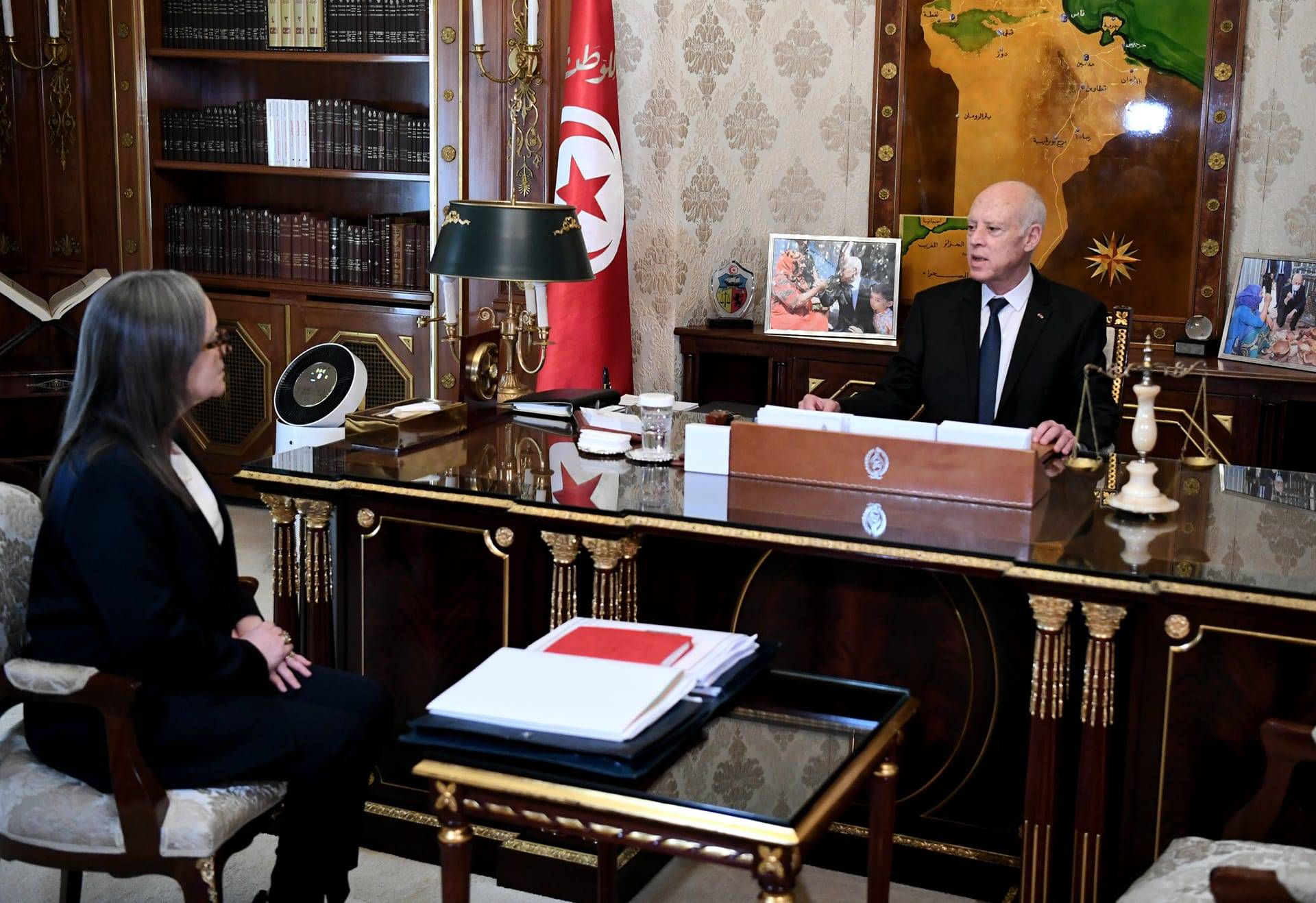Tunisian President Kais Saied sparked a wave of ridicule on the country's social media platforms, after his demand to impose restrictions on imports of luxury items in order to reduce the trade balance deficit with a number of countries.
Saeed said - when he met Prime Minister Naglaa Boden - that the aim of this measure is to reduce damage to public finances.
"How can one explain the supply of special food for domestic animals or the supply of cosmetics from foreign perfume houses, when there is (foreign) hard currency, while citizens in most of them doubt the minimum necessities of life," the presidency statement said.
"If there are difficulties, and the whole world is witnessing difficulties in many sectors, then the whole national group must bear these conditions on the basis of social justice," the statement added.
controversy and resentment
President Said's speech sparked widespread controversy on the communication platforms, as Tunisians expressed their discontent with linking the economic crisis to animal food and cosmetics.
After the Presidency of the Republic's page broadcast the news, the followers began to comment, and their positions ranged between resentment, sarcasm and questioning.
Many agreed that the president's conversation with Boden "is like talking to friends in a cafe", as the conclusions and statements that are said "do not amount to the speech of a leader of the country," according to some.
One of the commentators considered that "cafe talk is much better," considering that the employed or the unemployed "discuss the country's situation on a daily basis and develop better solutions than those proposed by the highest authority."
And what provoked strong reactions, the president's talk about the issue of monopoly, and many believe that in this way he considers that the food crises and shortages of basic commodities and materials are nothing but a plan.
Saeed’s meetings with the prime minister and the ministers of trade and interior have been repeated, but he insists on accusing his opponents of being behind the severe shortage of basic materials in order to mobilize the street against him, while his opponents see that the lack of liquidity and the shortage of hard currency is the cause of the crisis in the supply of goods, according to a number of specialists and opponents of the president.
missing items
Tunisia is witnessing a scarcity of a number of commodities and food products, most notably sugar, coffee, flour, oils and rice, which prompted supermarkets to limit the quantities of these commodities granted to individuals.
The country suffers from deteriorating economic conditions, which are exacerbated by the outbreak of a political crisis after last July 25, when “exceptional” measures were imposed, most notably the freezing of Parliament’s competencies, the issuance of legislation by presidential decrees, the dismissal of the prime minister, and the appointment of new ones.
Some commentators on the presidency's Facebook page believed that the president was unable to find solutions to the escalating crisis, and advised him "to restore power to the people to elect those who are able to get Tunisia out of its predicament."
"Black" mockery dominated a number of comments, with several users stating that the president's decision to ban the import of cosmetics may push women and girls to wear the niqab.
One of the followers commented, "If we do not die of hunger, we will die from smells. Without perfumes and showers, and with no water, we will turn into zombies."
Tunisia is experiencing a major shortage of several basic materials (Reuters)
criticism and impotence
Commentators did not fail to criticize the language in which the presidency's statement was written, considering I am "shaken and in the same style as the populist and constructivist president."
On Twitter, journalist Wejdan Bouabdallah said that the author of the presidential statement “does not understand how the market, or export and import is managed: he is waging a war on the supply of perfumes as if they are the cause of the extinction of sugar and oil and on animal food. This statement is an economic and linguistic setback."
Another account considered that Saeed "is not fit even to run a small grocery store."
Qais Saeed is not even fit to run a small grocery store https://t.co/os4zLbZWdE
— Ibrahim Al Ahmadᴵᴮᴿᴬᴴᴵᴹ ᴬᴸᴬᴴᴹᴱᴰ (@Ibrahimahmed_m) September 27, 2022
What increases the seriousness of the economic situation - especially - is that imports drain the foreign exchange reserves of the state treasury.
The trade deficit during the 8 months of this year amounted to 16.9 billion dinars (5.10 billion dollars), compared to 10.14 billion dinars ($3.06 billion) during the same period in 2021, according to data from the National Institute of Statistics.
China, Turkey, Algeria and Russia topped the list of countries with which Tunisia suffers from a trade deficit.

